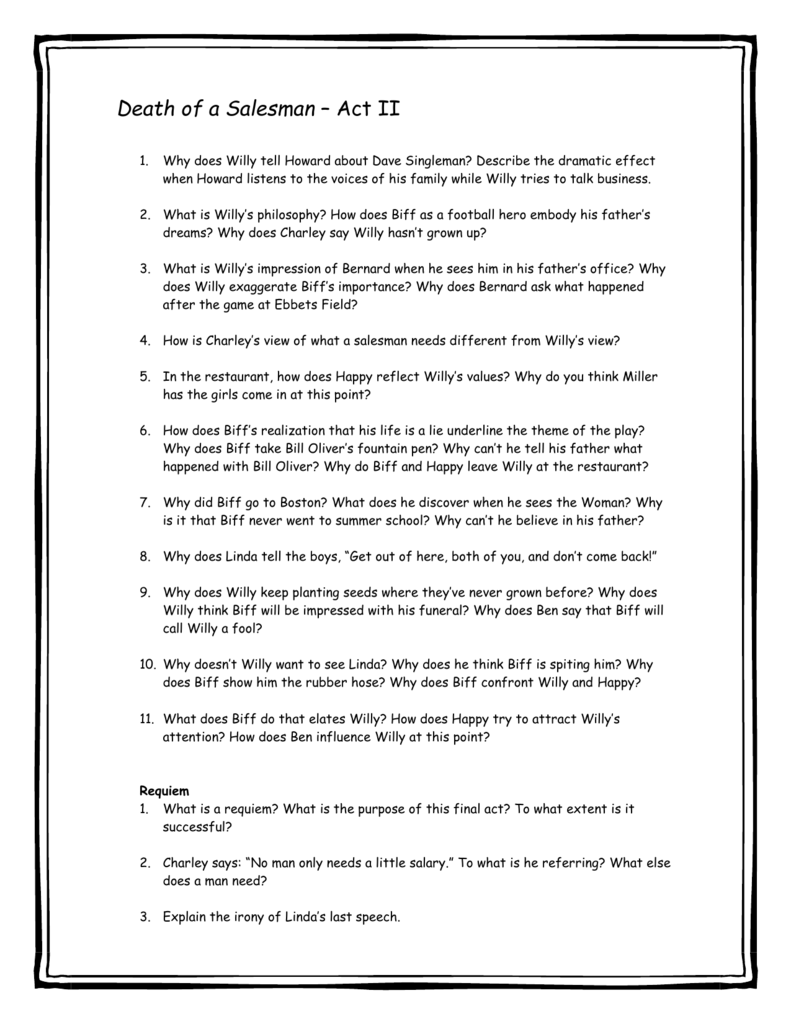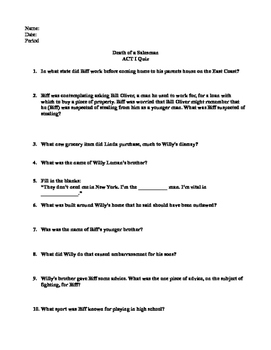

We might assume, in short, that Willy's consumerism is at odds with his environmentalism, or with what May calls the "longing of his ecological self' (70).īefore we claim that nature appreciation and commodity consumption are antithetical activities, we need to consider the extent to which capitalism produces not only habits of consumption but also habits of thought about nature, including perhaps the very idea of a "natural realm" neatly removed from "an economic realm" defined by human production and consumption (Fraser 63).

Since Willy is so frequently contradictory, when he articulates his pastoral yearnings, we might assume that he is simply being inconsistent: he wants to succeed in the "business world," as well as acquire the latest consumer trappings of that success, while also enjoying the salubrious pleasures of the natural world (16, 33, 61). He even, on one euphoric occasion, dreams of "getting] a little place out in the country" where he could "raise some vegetables" (72). These scholars are right to draw attention to Willy's feelings of displacement, for, throughout the play, Willy expresses environmental concerns and values: not only does he repeatedly deplore the overdevelopment of his "massacred" Brooklyn neighborhood, where "he grass don't grow anymore" and you "otta break your neck to see a star," but he also grows infatuated with the "scenery" while driving his car on a sales-trip to New England (Miller, Death 17, 52, 14).

And Theresa May, by invoking the concept of "social ecology," explains how Willy's marred relationships with a range of different human and non-human beings (flowers, elms trees, his family members, and his boss) have all contributed to his loss of "ecological situatedness" (66, 67). Jon Dietrick has noted, for example, what he calls Willy's "sense of separation from nature" (28). But recently some critics have begun to take Willy's lament that he has nothing "in the ground" more literally, suggesting that his problems are not only sociological or psychological but also ecological. Since Death of Salesman premiered in 1949, no shortage of commentators have identified the roots of Willy's crisis and ultimate suicide in a cutthroat economic system, in Willy's misguided dreams, or in some combination of the two.

I don't have a thing in the ground" (122). Fired from the job he has worked for over 35 years, abandoned by his two sons in a restaurant bathroom, Arthur Millers Willy Loman, probably the most famous salesman in American theatre history, laments, "Nothings planted.


 0 kommentar(er)
0 kommentar(er)
